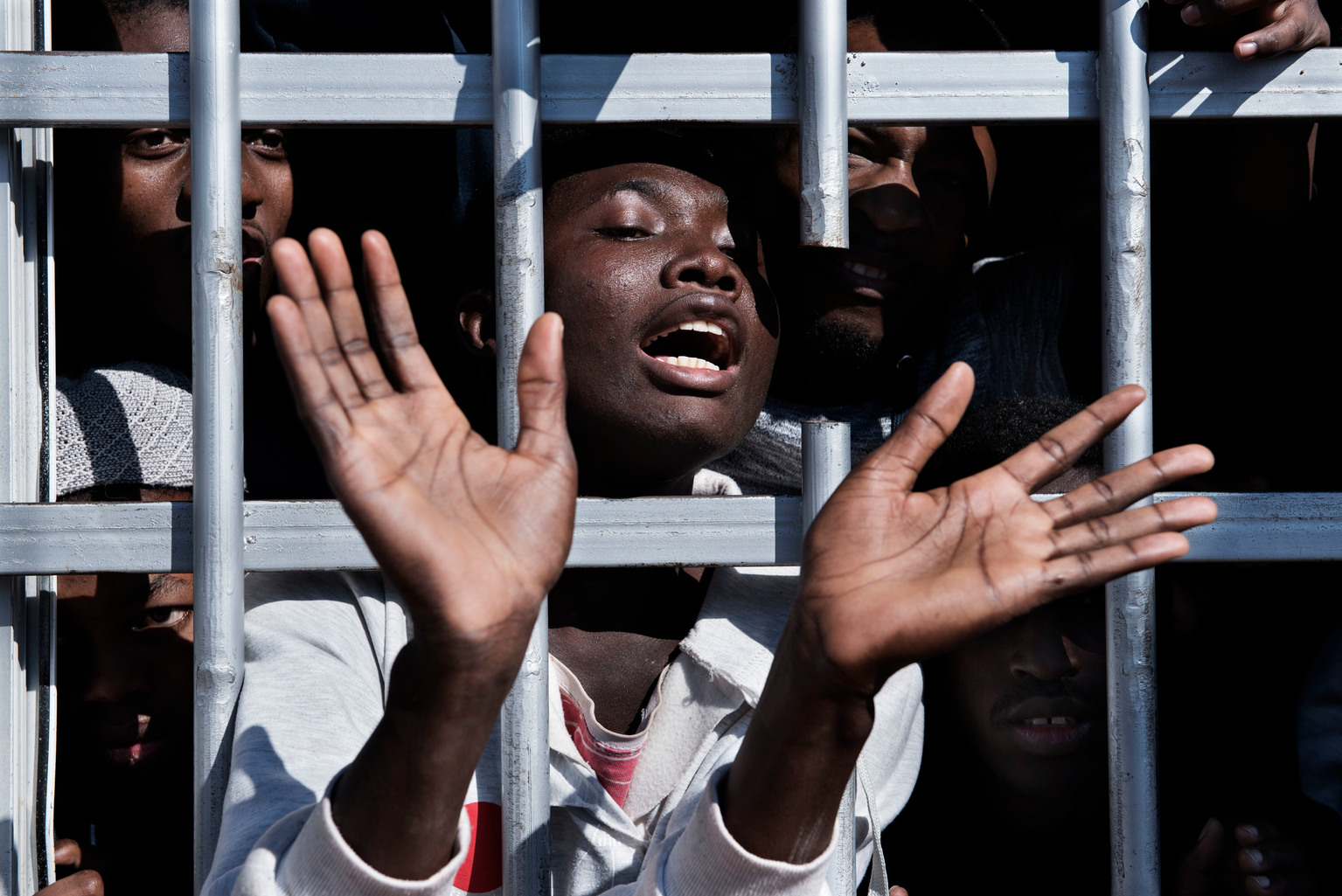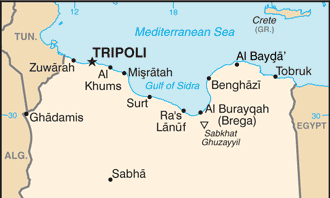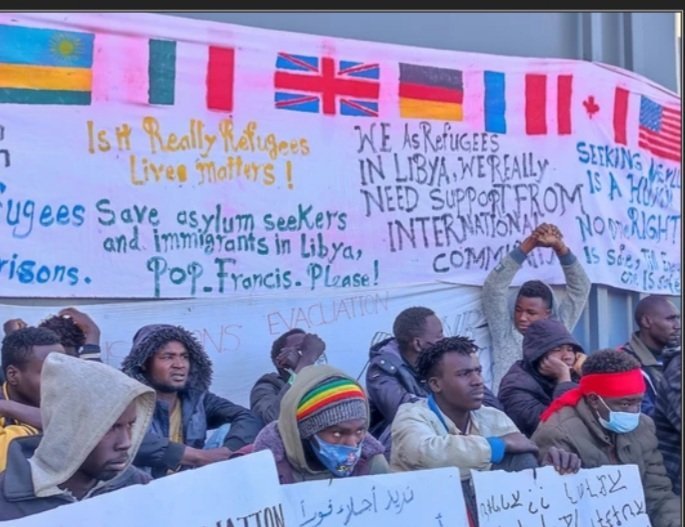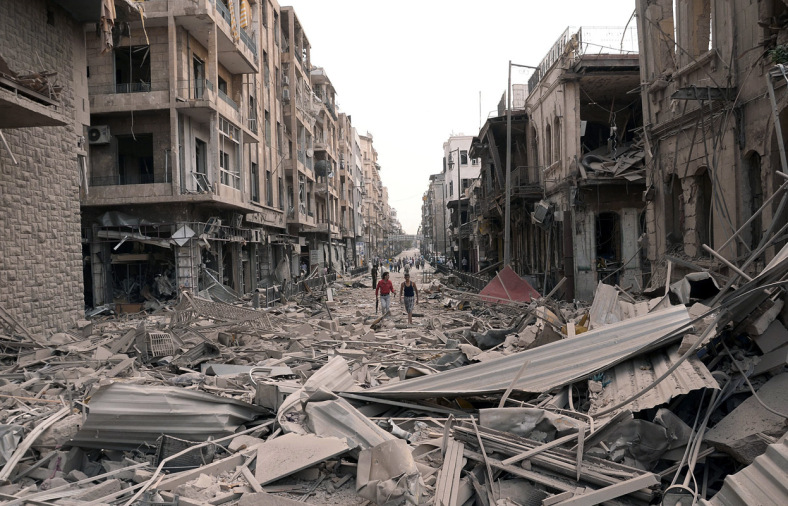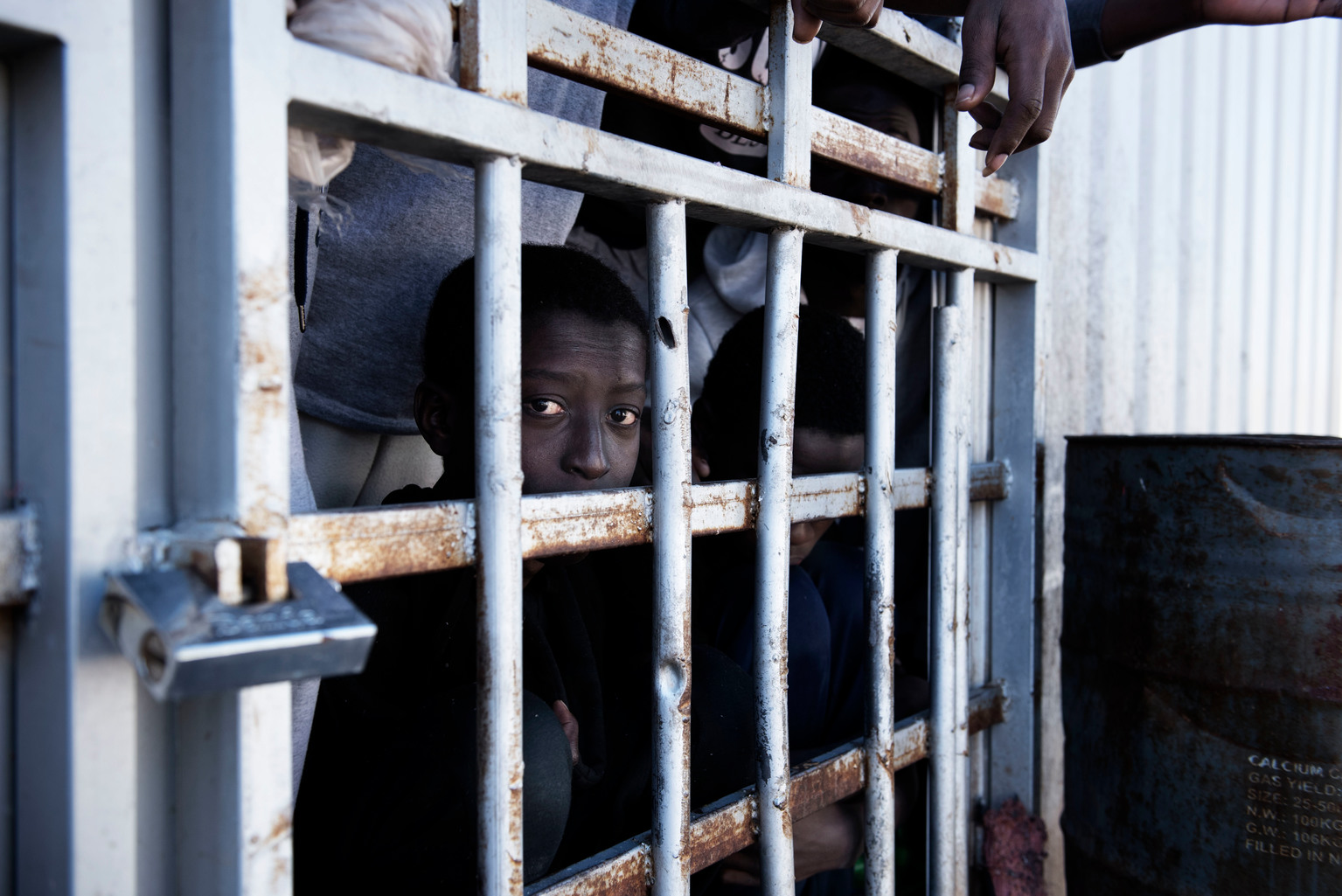
UN releases evidence of mass graves in Libya
The United Nations Support Mission in Libya (UNSMIL) released a report containing evidence of mass graves in the Libyan city of Tarhuna, southeast of Tripoli. The report estimates there could be as many as 100 undiscovered mass graves in the city. It claims that the al-Kaniyat militia, in power in Tarhuna from 2016 to 2020, is responsible for mass killings there. The militia is alleged to have used brutal torture methods on residents including women, children, the infirm, and the disabled. UNSMIL calls on Libyan authorities to “[e]stablish a Special Tribunal for Tarhuna to prosecute international crimes” and “[c]ontinue searching for the missing and for remaining mass graves…” (Map: Perry-Castañeda Library)




